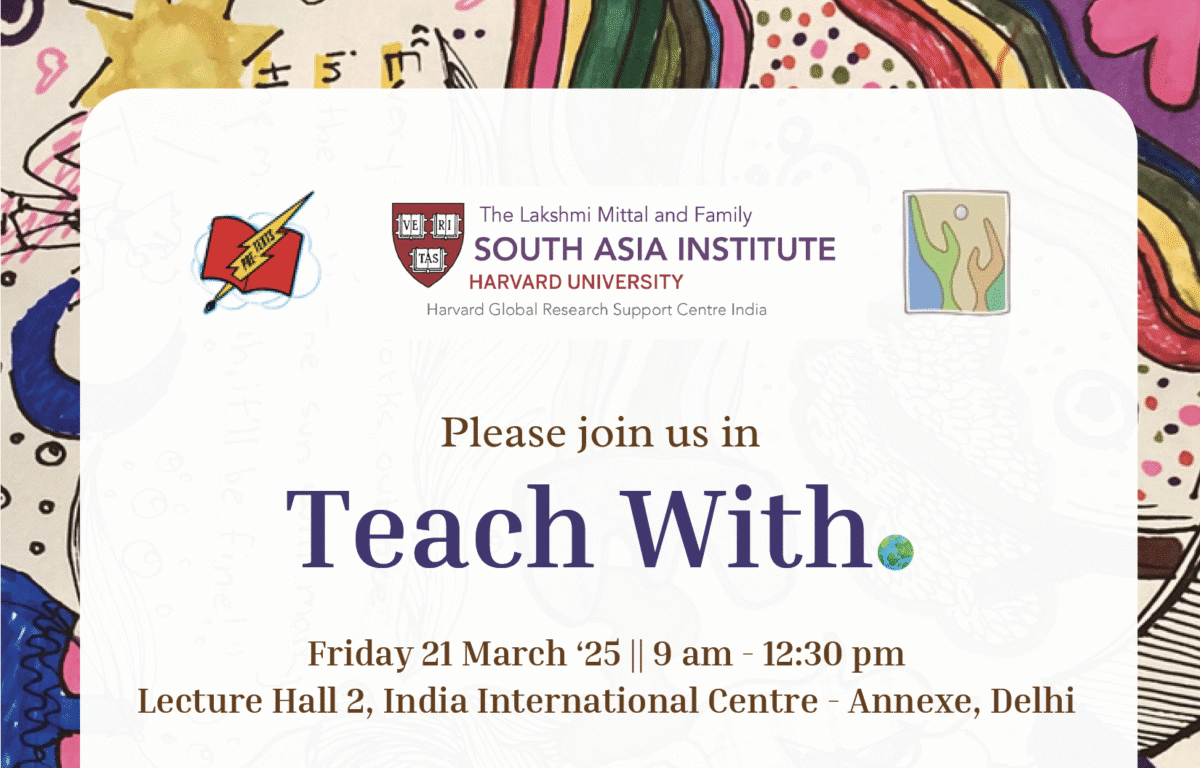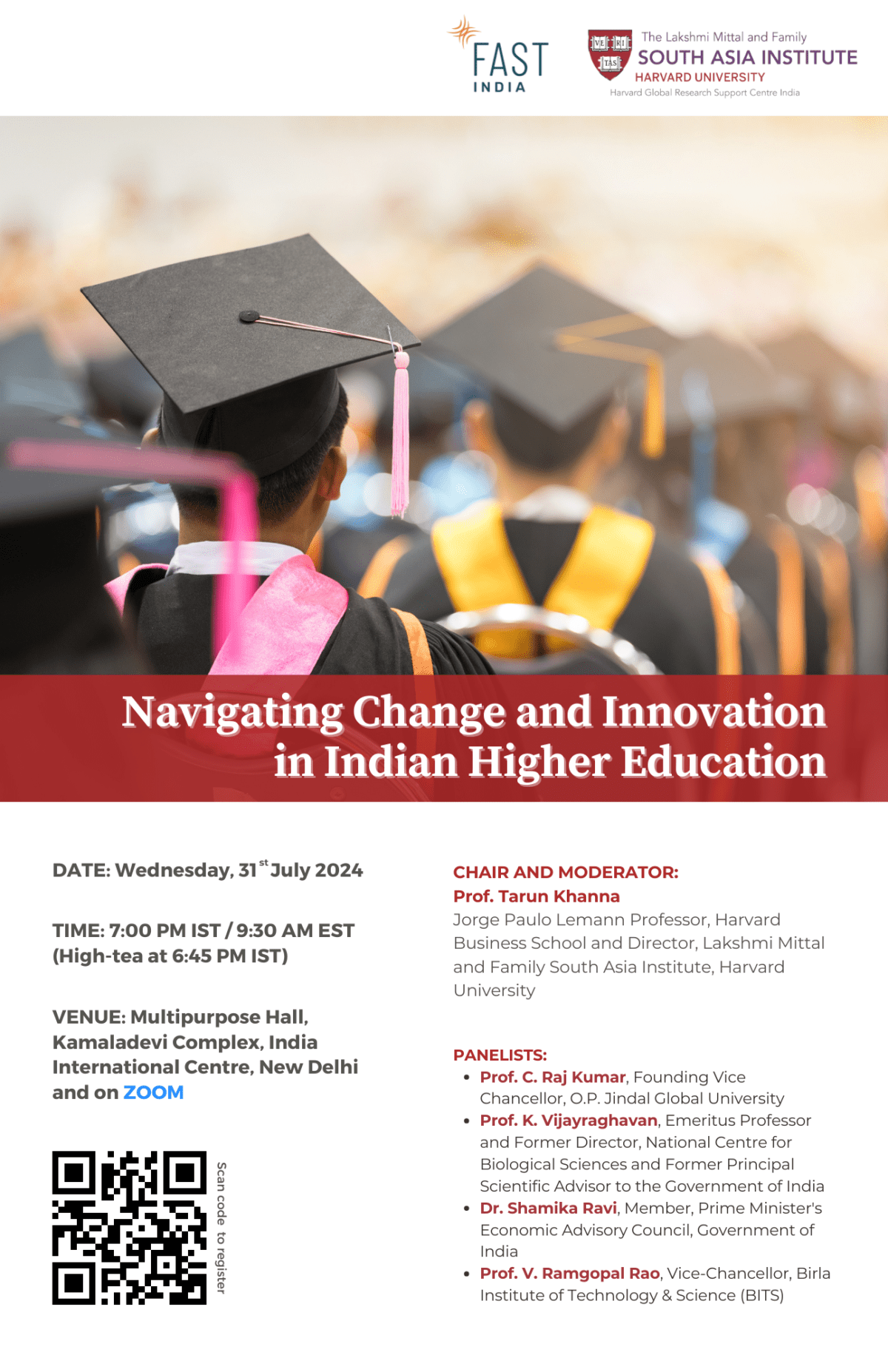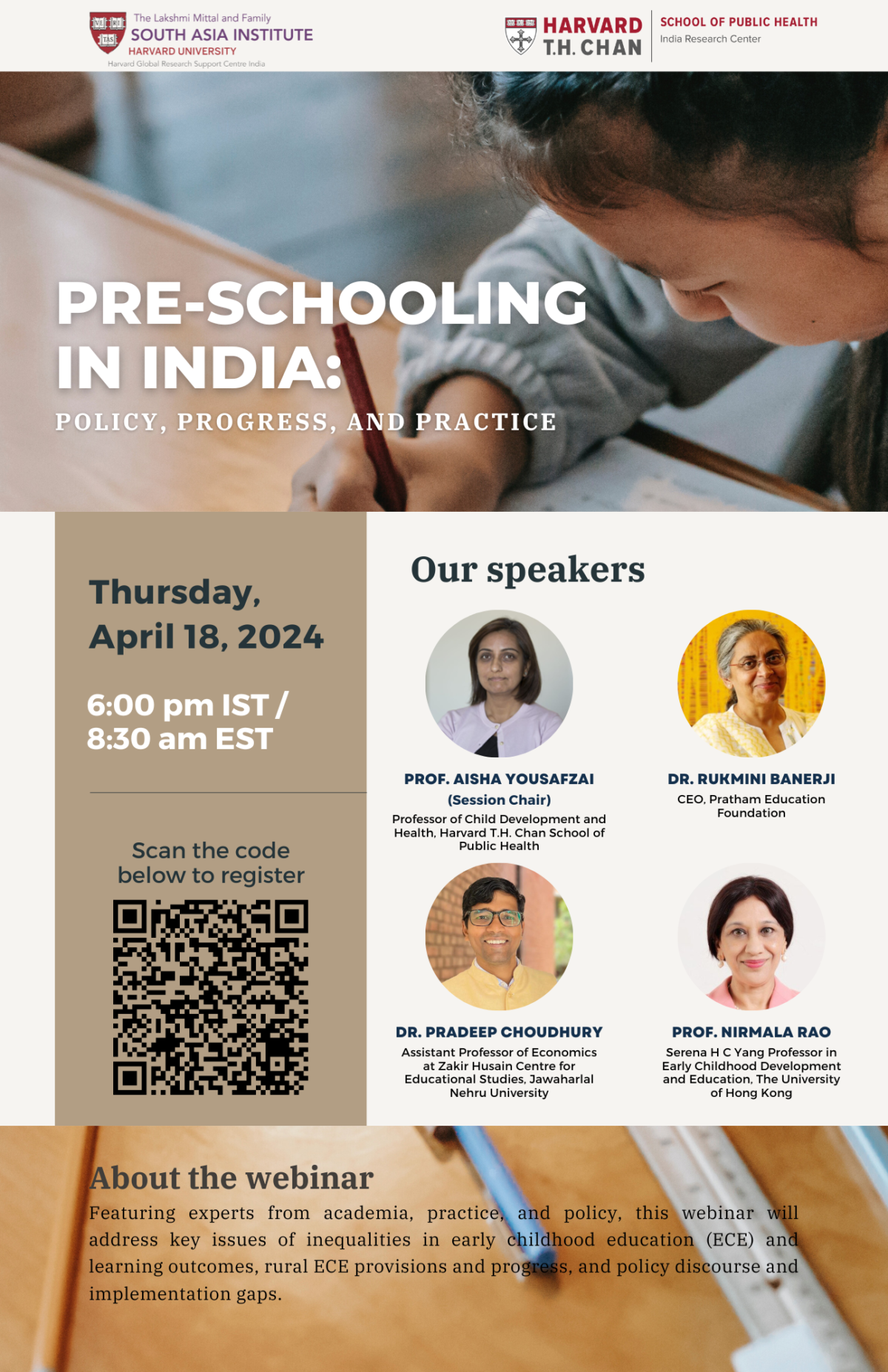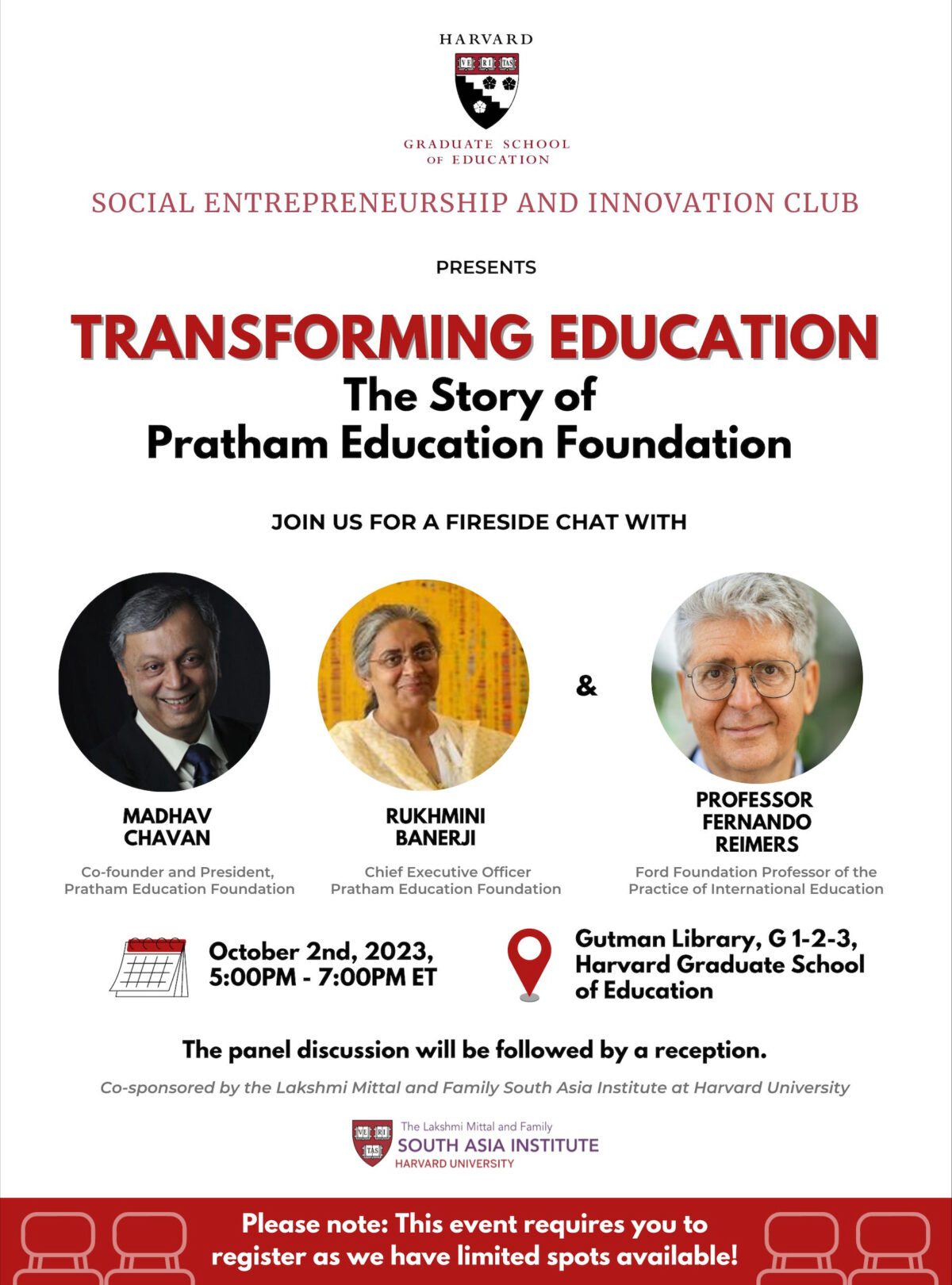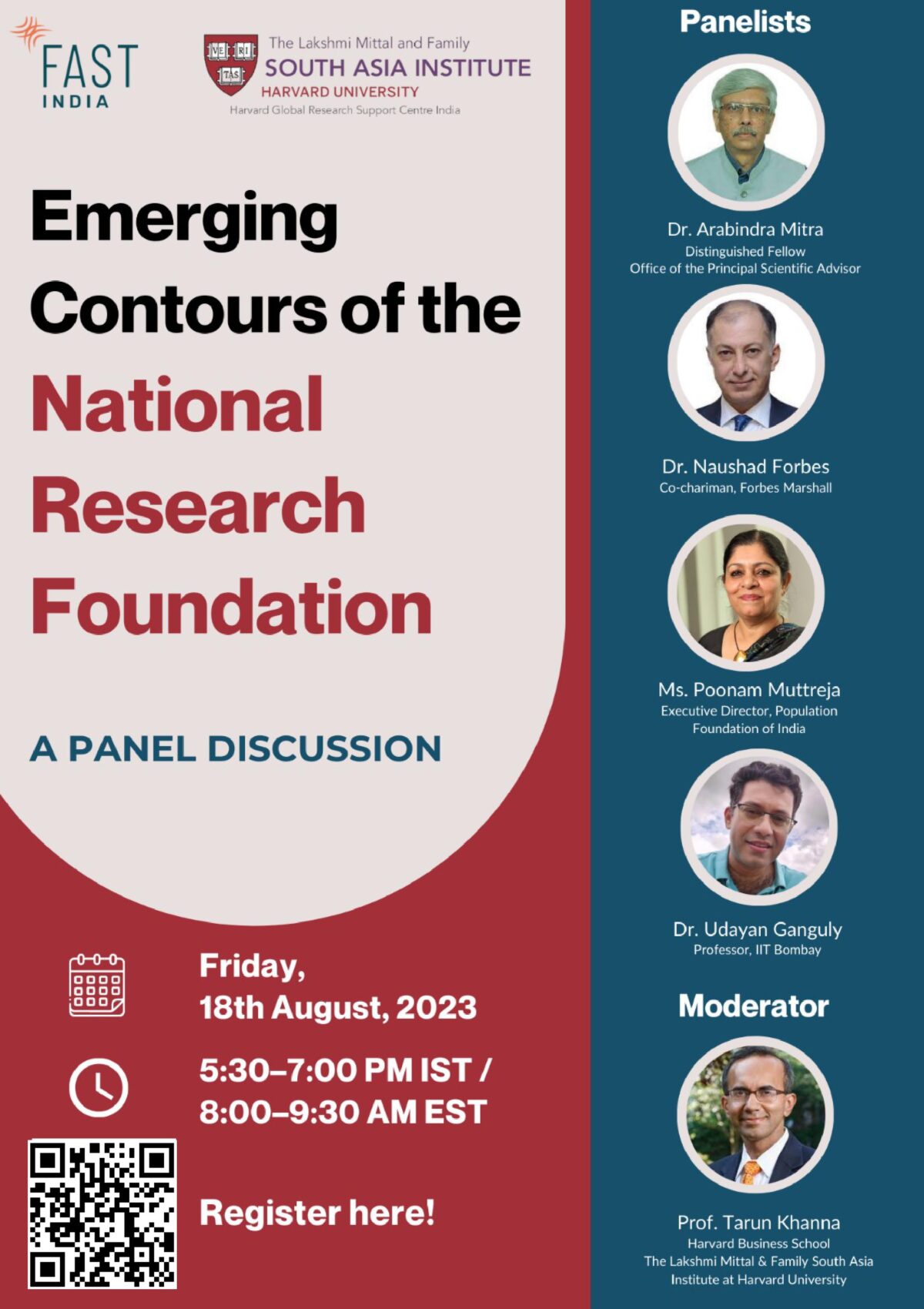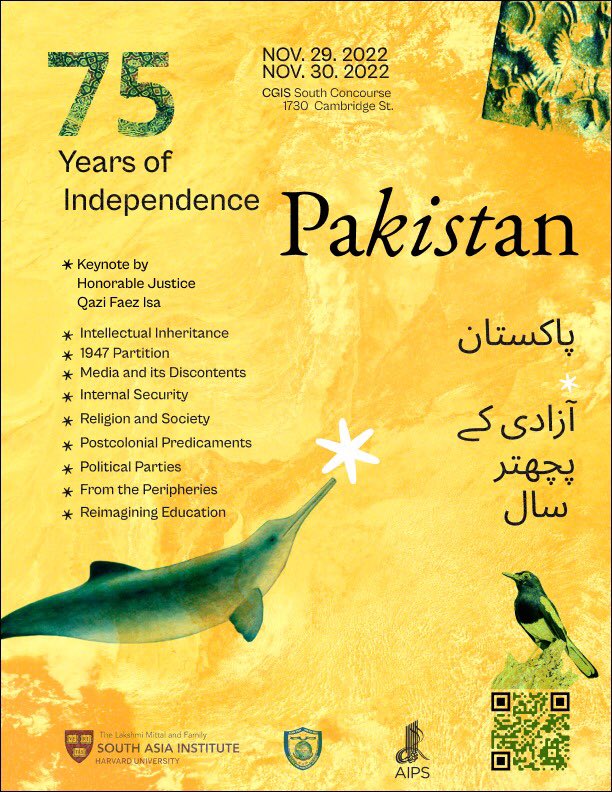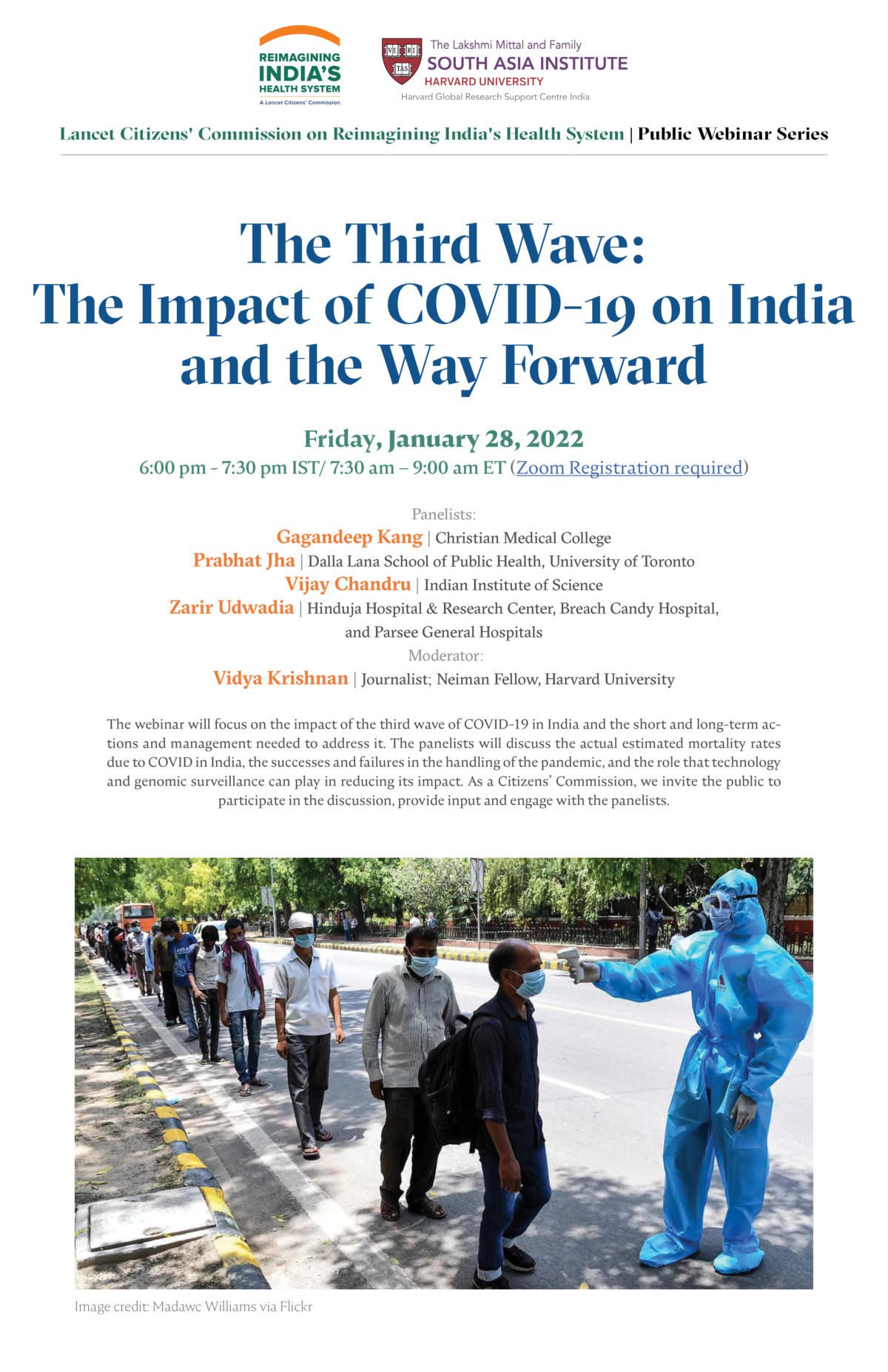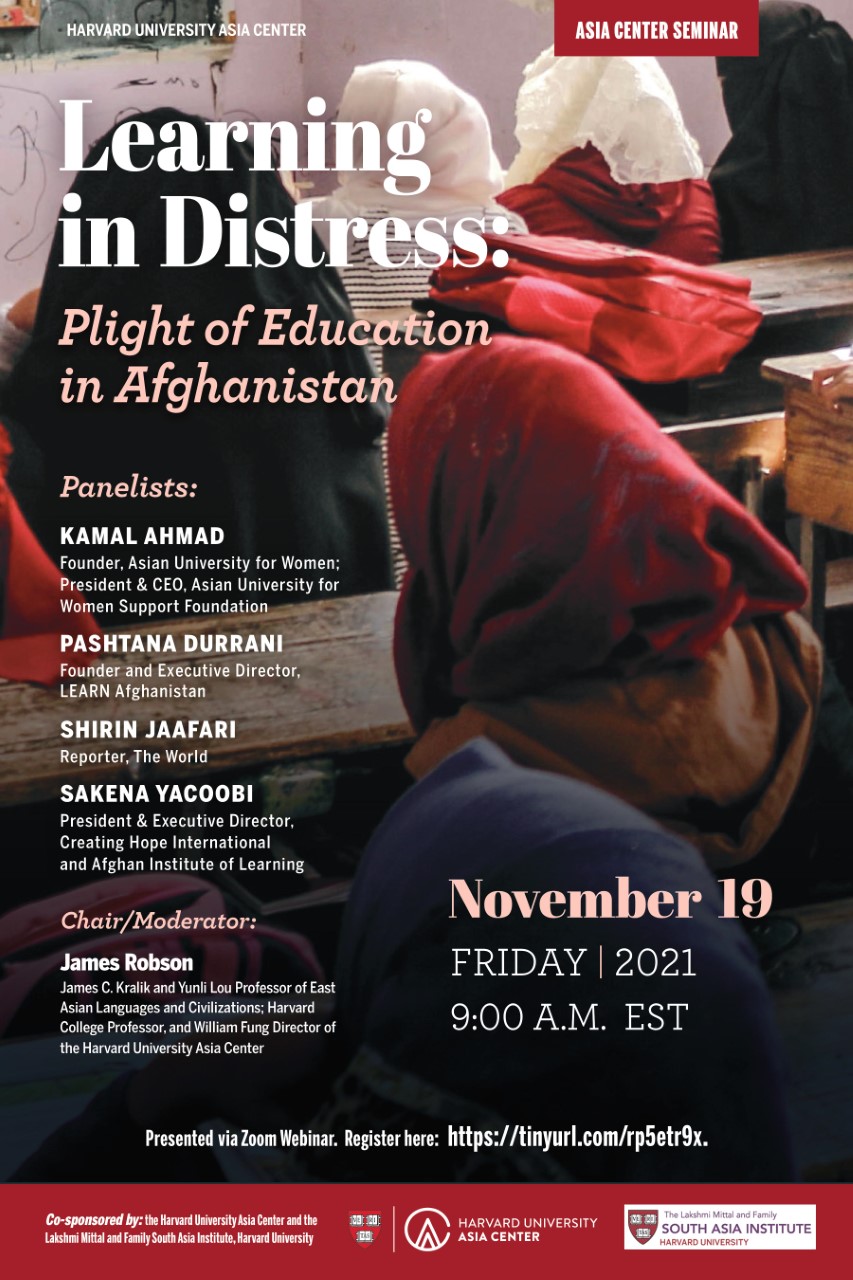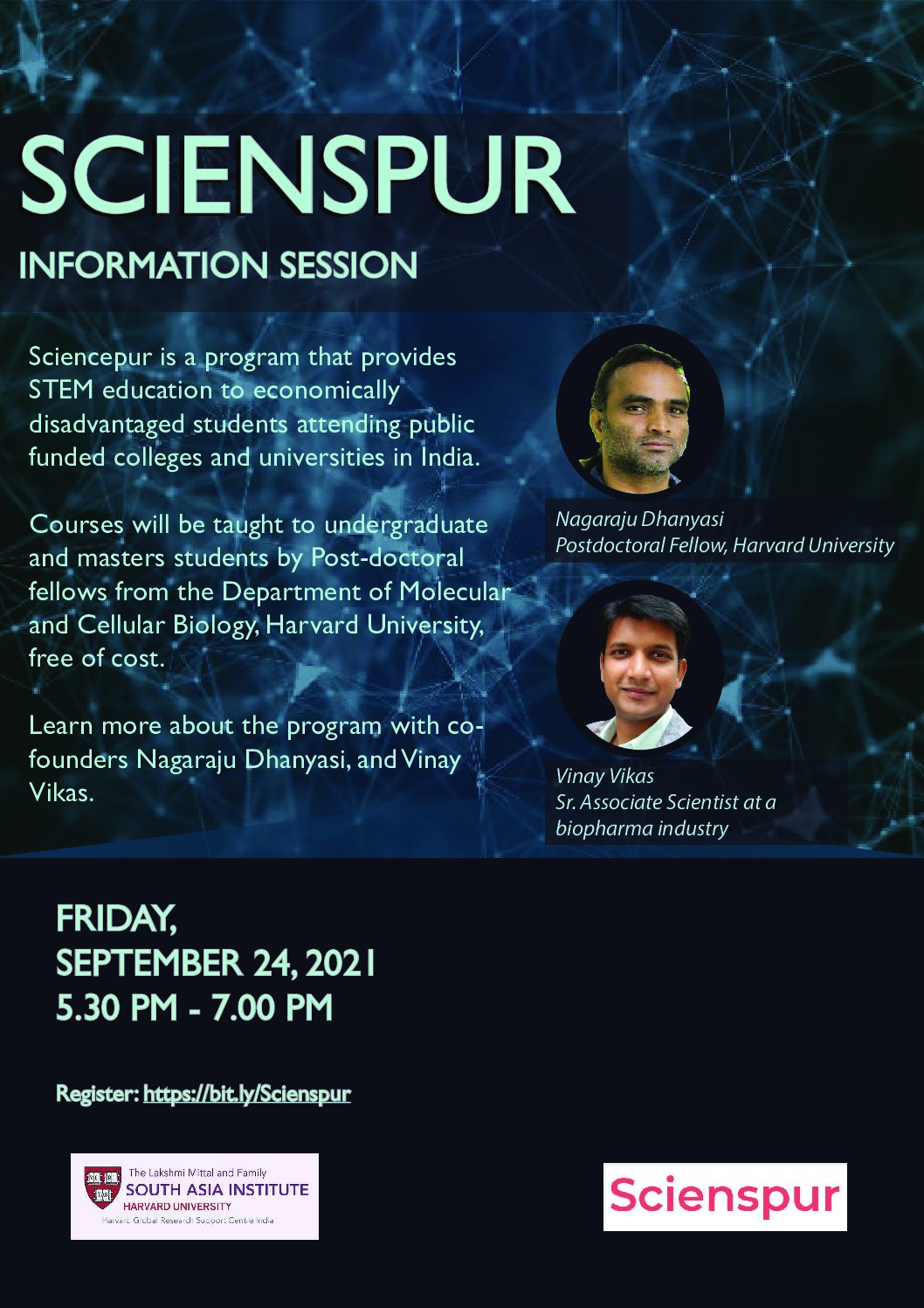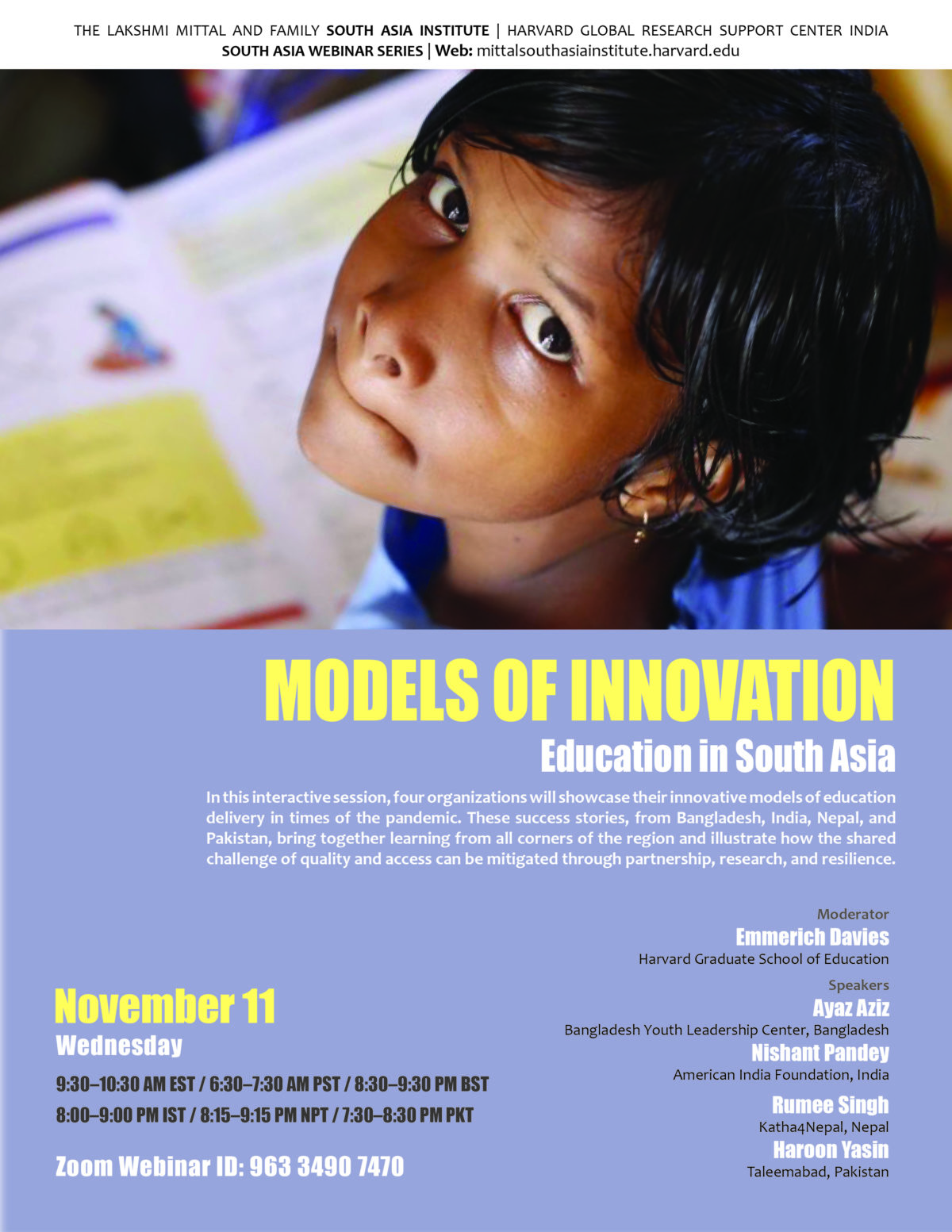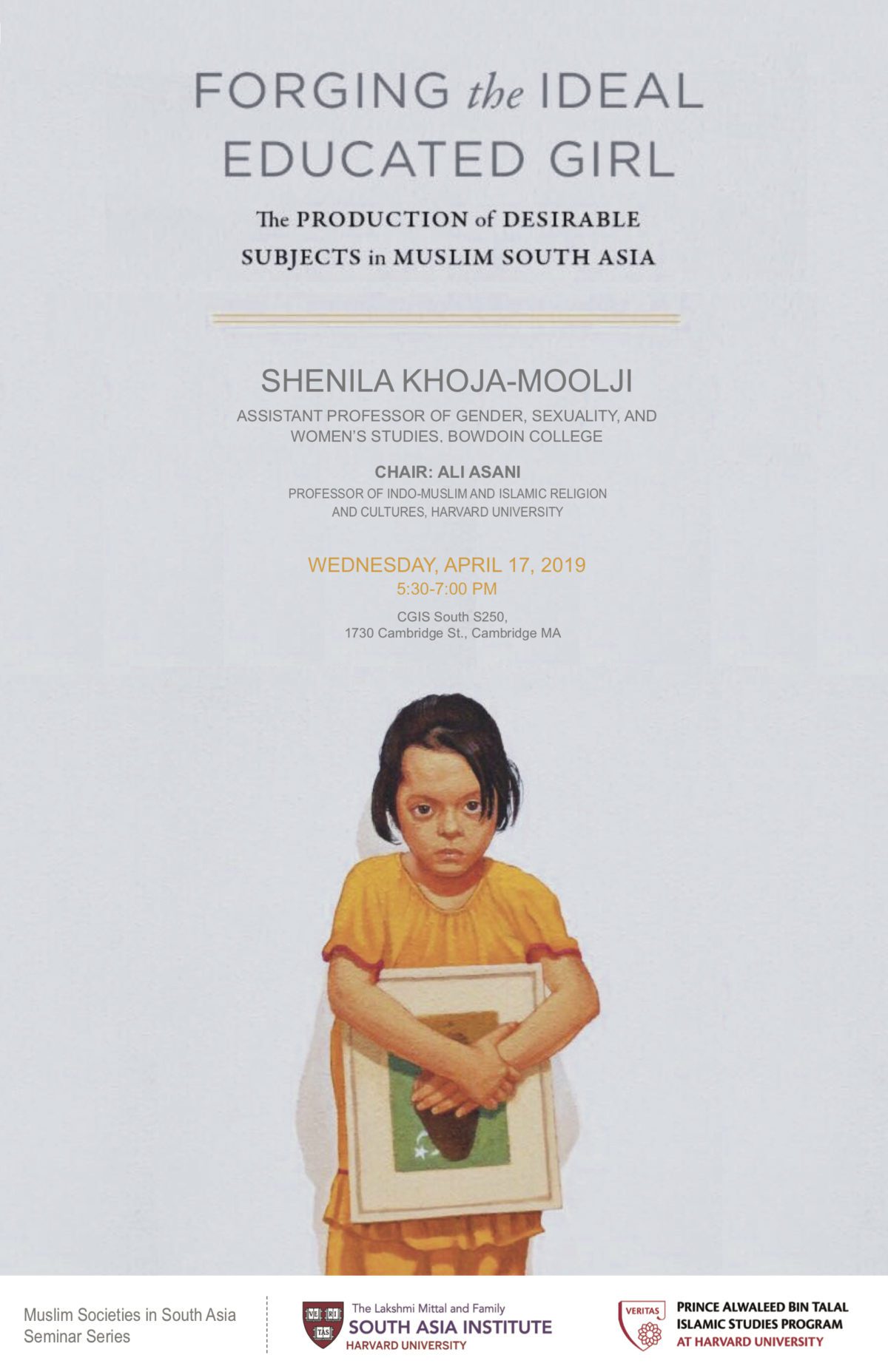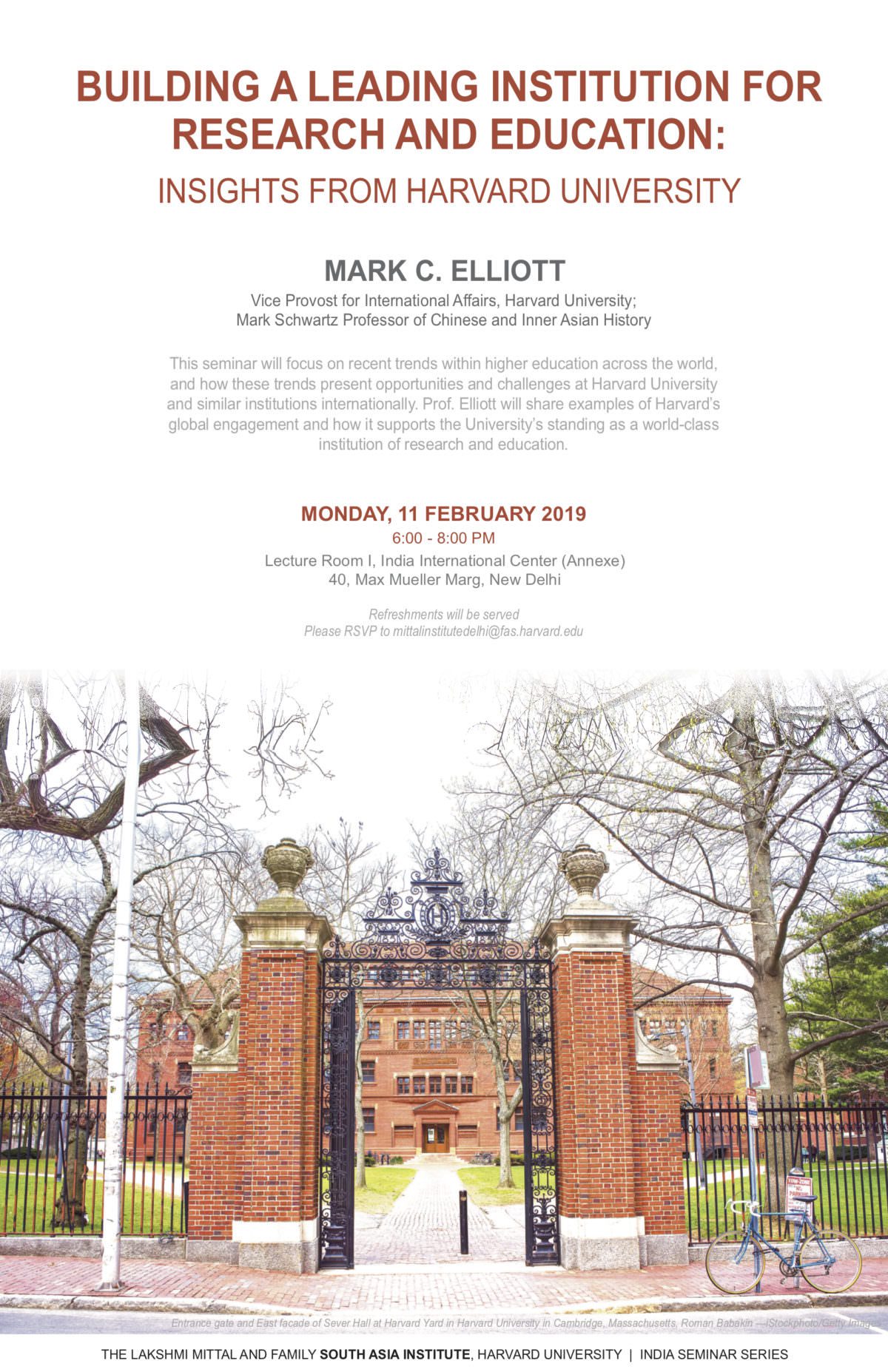WHEN
Wed, Jul 31, 2024 from 09:30am — 11:00am, ET
Join us for a panel discussion on “Navigating Change and Innovation in Indian Higher Education,” organized jointly by The Lakshmi Mittal and Family South Asia Institute at Harvard University and FAST-India.
More InfoWHEN
Thu, Apr 18, 2024 from 06:00pm — 07:30pm, ET
Join us for a webinar on Pre-schooling in India: Policy, Progress and Practice
More InfoWHEN
Fri, Aug 18, 2023 from 08:00am — 09:30am, ET
The webinar will feature a distinguished panel of experts from academia, think tanks, industry, and scientific administration. The National Research Foundation is envisioned to strengthen research ecosystem in the country by providing high-level strategic direction for scientific research and supporting collaborations among the industry, academia, government departments, and research institutions.
More InfoWHEN
Wed, Nov 30, 2022 at 09:00am, ET
COST The event is free and open to all.
VENUE
CGIS South Concourse, 1730 Cambridge Street, Cambridge, MA
This conference aims to bring a focused, though not exclusionary, lens to the study of the country, where in a regional context, Pakistan is overshadowed by its much larger neighbor.
More InfoWatch the Talk on YouTube. The webinar will focus on the impact of the third wave of COVID-19 in India and the short and long-term actions and management needed to address it. The panelists will discuss the actual estimated mortality rates due to COVID in India, the successes and failures in the handling of the pandemic, and the […]
More InfoWHEN
Fri, Nov 19, 2021 from 09:00am — 10:30am, ET
Register for the talk Panelists Kamal Ahmad, Founder, Asian University for Women; President & CEO, Asian University for Women Support Foundation Pashtana Durrani, Founder, and Executive Director, LEARN Afghanistan Shirin Jaafari, Reporter, The World Sakena Yacoobi, President & Executive Director, Creating Hope International and Afghan Institute of Learning Chair/Moderator: James Robson, James C. Kralik and Yunli Lou Professor of East Asian Languages and […]
More InfoWHEN
Fri, Sep 24, 2021 from 08:00am — 09:30am, ET
5:30pm-7:00pm IST // 8:00am-9:30am EST Register here ScienSpur and the Lakshmi Mittal and Family South Asia Institute, Harvard University are hosting a virtual information session on the upcoming fall semester courses in Life Sciences on September 24, 2021, from 5.30 pm to 7 pm (IST). Kindly register and confirm your presence. Scienspur, co-founded by, Nagaraju Dhanyasi (Harvard […]
More InfoWHEN
Wed, Nov 11, 2020 from 09:30am — 10:30am, ET
Link to join Webinar: https://harvard.zoom.us/j/96334907470 Register to receive updates on this webinar series: https://bit.ly/34FdVUZ In this interactive session, four organizations will showcase their innovative models of education delivery in times of the pandemic. These success stories, from Bangladesh, India, Nepal, and Pakistan, bring together learning from all corners of the region and illustrate how the […]
More InfoWHEN
Wed, Apr 17, 2019 from 05:30pm — 07:00pm, ET
Dr. Shenila Khoja-Moolji is Assistant Professor of Gender, Sexuality, and Women’s Studies at Bowdoin College. Her work examines the interplay of gender, race, religion, and power in transnational contexts, particularly in relation to Muslim populations. Dr. Khoja-Moolji is the author of Forging the Ideal Educated Girl: The Production of Desirable Subjects in Muslim South Asia. […]
More Info